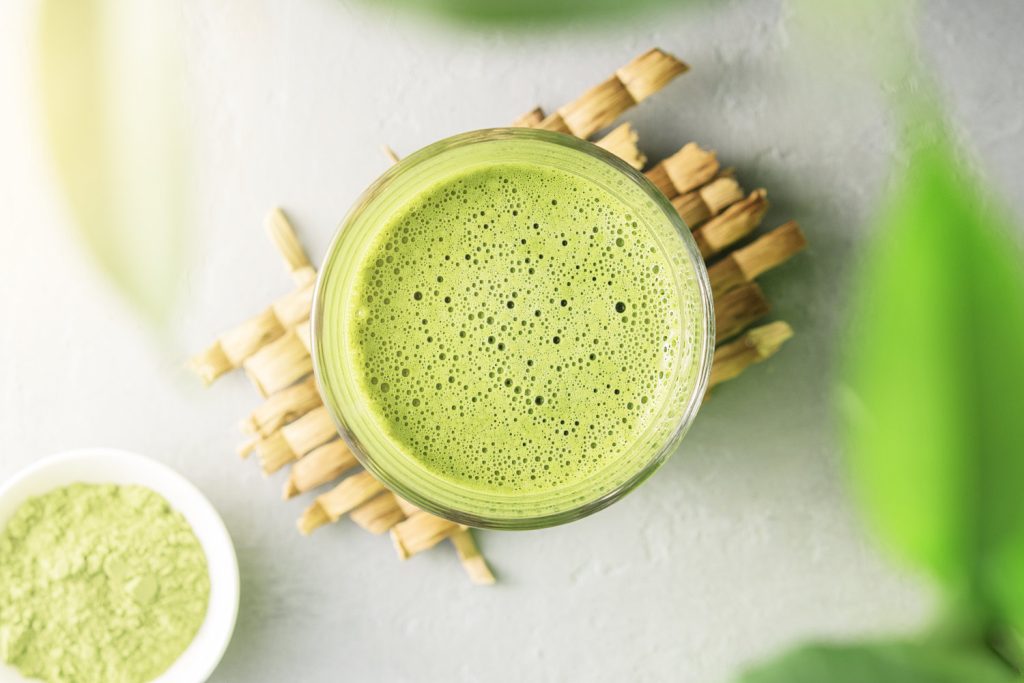Matcha, the latest trendy green drink, is a powdered green tea, mostly produced in Japan. Matcha is made from the leaves of the Camellia sinensis plant, the same plant used to produce other green teas. However, matcha may contain more antioxidants than green tea, boosting its health effects.
What is Matcha?
Matcha is a powdered green tea that originated in China. It has been used in Chinese and Japanese culture to improve Zen meditation sessions by producing a state of calm alertness. Now, matcha can be found all over the world as a coffee substitute.
What’s the Difference Between Matcha and Other Green Teas?
Matcha and green tea both come from the Camellia sinensis plant, but matcha and green tea are grown differently and have different nutrient profiles. Matcha plants are grown in the shade and the lack of sunlight increases the chlorophyll production, giving matcha its signature deep-green color.
While green tea is distributed in tea bags or loose-leaf form, matcha is a powdered tea. Instead of steeping as you would with green tea, matcha is whisked into hot water until the powder dissolves. Matcha’s distinctive flavor also makes it a great addition to smoothies, lattes, or desserts.
Antioxidants
Matcha has a high concentration of antioxidants due to the way it’s grown. According to www.Cancer.gov, antioxidants help protect cells from damage by free radicals. Free radicals are associated with higher risks of various diseases, such as cancer and diabetes. Antioxidants may also help lower cholesterol levels, improve blood flow, reduce blood pressure, and provide anti-inflammatory effects.
Brain Function
A few small studies have shown matcha could enhance brain function. Matcha contains a combination of caffeine and L-theanine, which are thought to boost energy levels and memory and improve attention and reaction time.
The National Library of Medicine states that L-theanine promotes relaxation and reduces stress, and, when combined with caffeine, it can provide a calm, focused energy without the jitters often associated with other caffeinated beverages.
Stress Reduction
A 2018 study from the University of Shizuoka evaluated the effects of matcha on stress-reduction and found that students given matcha reported less stress and anxiety than those who were given a matcha placebo.
Researchers have also found that matcha activates dopamine and serotonin receptors in the brain, increasing happiness and decreasing stress and anxiety.
Vitamins and Minerals
Matcha contains zinc, vitamin C, vitamin E, B-vitamins, vitamin A, manganese, potassium, magnesium, calcium, phosphorous, sodium, chromium, and copper. While you can get these vitamins and minerals from other sources, matcha is an excellent way to get some extra nutrients and boost your immune system and overall well-being.
While matcha offers many potential health benefits, please note that individual results may vary, and it should be consumed as part of a balanced diet. Additionally, it’s advisable to consult with a healthcare professional before making a significant change to your diet.


